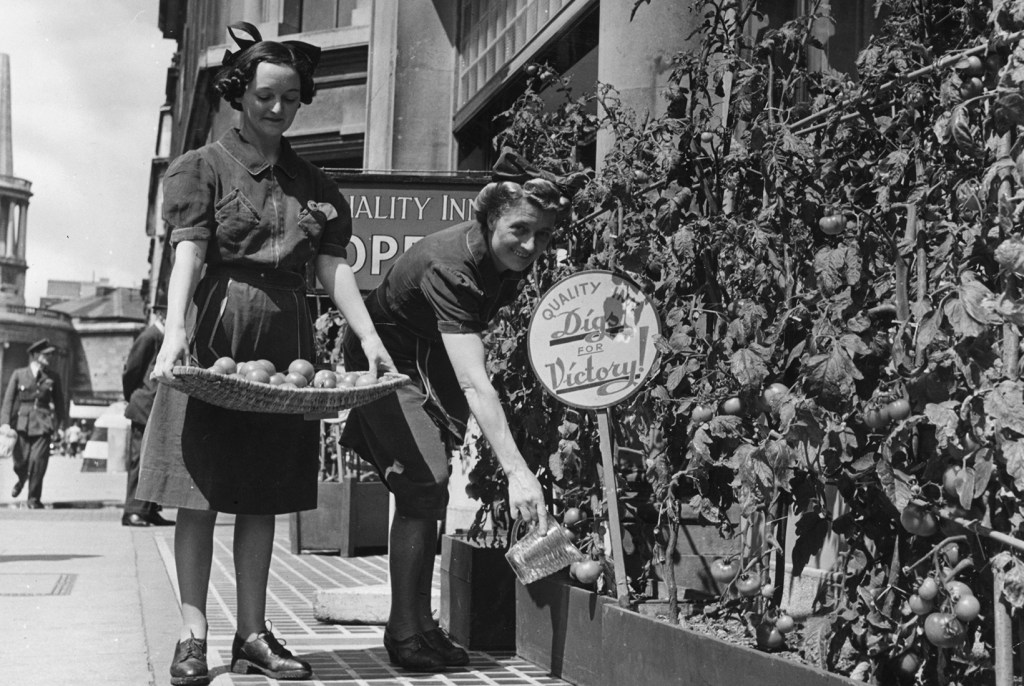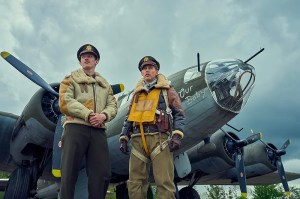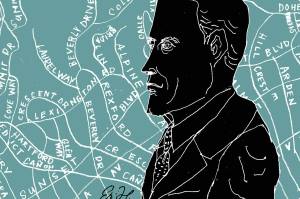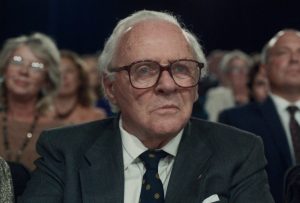‘We don’t talk about the war.’ Yet those of my generation and older reference it daily. The coronavirus is an unseen enemy but for everyone not in military service, so were our past enemies — Germany, Italy, Japan, Russia — invisible mainly because the mainland was never physically invaded by any of them, so the only sightings were on the newsreels. All we can see of the virus is that horrible furry ball with round-ended spikes sticking out of it, which is what it looks like under a microscope, but this is still a war, the same as any other.
We were not actually quarantined then but travel was both difficult and discouraged, and fierce men on posters asked: ‘Is your journey really necessary?’ We had food shortages, which continued in the form of rationing well after 1945. We were also encouraged to ‘Dig for victory’, of which I was reminded when trying to buy our usual French bean seeds this week. They are like gold dust and, when you do find some, are sold in half dozens for an extortionate price.
And that’s another thing rearing its ugly head — profiteering. In an online pharmacy, I saw the children’s medicine Calpol priced at £11.75 ($14.66) for a small bottle, instead of under £4 ($5). Thank God we do not have air raid sirens, whose terrible wail still makes my heart contract, nor do we have the blackout, but remembering that strange thing brings me to something else unpleasant — snitching. That is a Harry Potter sort of word, which makes it sound like a game. Substitute ‘informer’. If there was a sliver of light showing at your window and the blackout warden didn’t notice, a neighbor would soon tell him.
During the first few days of this lockdown, a few second-home owners were here-abouts, until MPs wrote public letters asking them to stay away for now. In no time, the snitches printed multiple copies to slip through letterboxes, and put up unpleasant posts on social media, almost identifying though never quite naming. Lists of addresses were sent to the council. The snitchers then turned their attention to policing other people’s movements. A law-abiding friend in rural Devon left home for an unmissable medical appointment. On her return she received an email: ‘Was that jaunt “essential travel”?’ Next day, she delivered groceries to an elderly, solitary neighbor. They rarely see hide or hair of the police near her remote cottage but sure enough, that afternoon, a patrol car drove slowly up and the officer watched her house for ten minutes. I suppose they have little else to do, road traffic accidents being at their lowest since 1910.
They have blocked vehicular access to our beaches but folk with a view have their binoculars out for spying on other folk in case they start removing the bollards, which is all very trivial in comparison with the Gestapo, but the mentality of those Germans who snitched is the same. The secret police scarcely needed to do their own surveillance, because informers were only too pleased to supply them with details. Our tale-tellers add another layer of worry to an already troubled atmosphere.
If you don’t go online, you are missing a lot. I don’t mean the fake news and general unpleasantness, mainly on social media; I mean the wonderful internet worlds which will open up to any inquisitive traveler. Every gallery and museum has a website laying their treasures at your feet. Great art on a screen is not the same as seeing the real thing, in the same way that pictures are no substitute for traveling to remote places, but it is better than not seeing them at all, and the quality of the images is now superb. The riches of the Smithsonian Institute are beyond compare and they have a brilliant user-friendly website, from which you can visit all their museums. They divide the site into art and design, history, culture, science and nature and have a searchable database of millions of digital records. You will never want to leave.
I have long loved the Tintin books. If you do not, this recommendation won’t mean much to you, but for aficionados, it is a delight unparalleled. Facebook has a group called ‘Neurchibald de Tintin’. People put up great paintings with the characters subtly photoshopped in. The moment you spot Snowy in a Leonardo or Thomson et Thompson hiding in a Magritte your day is made. You can even take a virtual 360-degree tour of a gallery in the Louvre with every painting subtly invaded.
As you grow older you forget books you have read more quickly. But there is much to be said for revisiting known pleasures, and trilogies of novels last a satisfactorily long time, so I have just taken down Evelyn Waugh’s Sword of Honor trio. I never got on with Brideshead, Decline and Fall or Vile Bodies — I find them brittle and cold — but the three Guy Crouchback books, set in the World War Two, are quite the opposite. They are deeply engaging, funny, warm, moving, sad by turns, packed with richly imagined characters, and their atmosphere is immersive. Olivia Manning’s Fortunes of War series is almost as good. Those should keep you going.
Here is a tale from the front line. A paramedic friend was taking a very old, very sick lady to hospital, but realized that she was particularly disorientated and distressed because she was profoundly deaf. The paramedic googled ‘sign language’ on her phone, and quickly learned the phrase ‘We will look after you’. As she signed it, the patient smiled and relaxed, and held her hand tightly, because she felt individually valued, and safe. We have been clapping on Thursdays not because National Health Service workers do their job well, but because so many, as they say, ‘go the extra mile’. As they also say: stay safe. A very happy and blessed Easter to you.
This article was originally published in
The Spectator’s UK magazine. Subscribe to the US edition here.


















